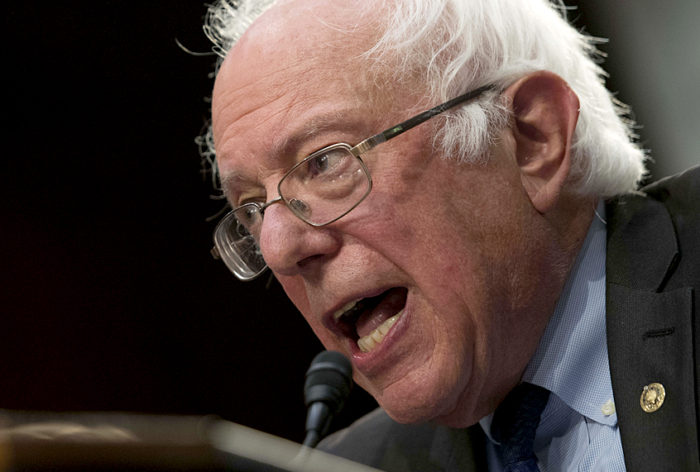

Of course, American politics has indeed become more like a team sport in recent years, and Sanders’ rejection of political tribalism is unusual amid this hyper-partisan ethos. Consider a recent study conducted by University of Maryland professor Lilliana Mason, which examines how political polarization in the U.S. has been driven more by “identity-based ideology” than “issue-based ideology.”
While issue-based ideology is founded on a set of beliefs and a unique worldview, identity-based ideology, as the term implies, is mostly about group identity. Not surprisingly, the latter is much more likely to bring about the kind of political tribalism and personal resentment that we commonly see today (e.g., in Donald Trump’s brand of politics). It is the “otherness” of ideological opponents, Mason writes, “more than issue-based disagreement, that drives liberal-versus-conservative rancor.”
To compare these different forms of ideology, Mason looked at how they impact social interaction, including whether one would be willing to marry, befriend or live next door to someone based on issue-based or identity-based ideological differences. The results are clear:
“It could be argued that people would like to marry those they agree with politically, but the effect of issue-based ideology on ideological marriage preferences is less than half the size of the effect of identity-based ideology,” Mason reports. “In fact, the effect of issue-based ideology is less than half the size of identity-based ideology in each element of social distance.”
Team names without issue knowledge, Mason continues, “can generate political conflict that is unmoored from distinct policy goals. This is likely to lead to a less compromise-oriented electorate. After all, if policy outcomes are less important than team victory, a policy compromise is a useless concession to the enemy.”
more recommended stories
 Fentanyl Seizures at Border Continue to Spike, Making San Diego a National Epicenter for Fentanyl Trafficking
Fentanyl Seizures at Border Continue to Spike, Making San Diego a National Epicenter for Fentanyl TraffickingFentanyl Seizures at Border Continue to.
 Utah Man Sentenced for Hate Crime Attack of Three Men
Utah Man Sentenced for Hate Crime Attack of Three MenTuesday, August 8, 2023 A.
 Green Energy Company Biden Hosted At White House Files For Bankruptcy
Green Energy Company Biden Hosted At White House Files For BankruptcyAug 7 (Reuters) – Electric-vehicle parts.
 Former ABC News Reporter Who “Debunked” Pizzagate Pleads Guilty of Possessing Child pδrn
Former ABC News Reporter Who “Debunked” Pizzagate Pleads Guilty of Possessing Child pδrnFriday, July 21, 2023 A former.
 Six Harvard Medical School and an Arkansas mortuary Charged With Trafficking In Stolen Human Remains
Six Harvard Medical School and an Arkansas mortuary Charged With Trafficking In Stolen Human RemainsSCRANTON – The United States.
 Over 300 People Facing Federal Charges For Crimes Committed During Nationwide Demonstrations
Over 300 People Facing Federal Charges For Crimes Committed During Nationwide DemonstrationsThe Department of Justice announced that.
